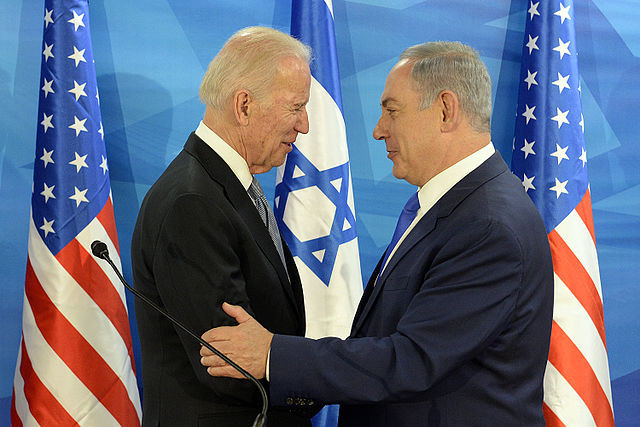In a critical juncture for the ongoing Gaza conflict, efforts to secure a ceasefire are teetering on the edge of collapse, with Israeli Prime Minister Benjamin Netanyahu facing intense scrutiny for his role in derailing the negotiations. Despite U.S. President Joe Biden's sustained diplomatic push, Netanyahu's consistent backtracking and new demands have placed the ceasefire talks on life support, leading to growing frustration among international mediators and his own security officials.
President Biden, working closely with leaders from Egypt and Qatar, has been urging both Israeli and Hamas negotiators to reconvene in Doha for indirect talks aimed at ending the conflict that has ravaged Gaza for nearly a year. However, despite Biden's diplomatic efforts, Netanyahu has been identified as the principal obstacle to progress. For months, the Israeli Prime Minister has introduced new conditions and withdrawn previously agreed-upon terms, leading to accusations from Israeli security officials that he is deliberately sabotaging the negotiations to maintain his political power.
Since the collapse of a week-long truce on December 1, Biden has invested significant political capital in reviving a ceasefire, yet he has refrained from publicly criticizing Netanyahu for his obstructionist tactics. Instead, the U.S. continues to funnel military support to Israel, with the State Department approving a historic $20 billion arms sale this week. This package, one of the largest in U.S. history, includes F-15 fighter jets, tactical vehicles, and tens of thousands of explosive mortar rounds and tank cartridges, all financed largely by American taxpayers.
The Biden administration's reluctance to leverage its substantial military aid to Israel has drawn criticism from those who see Netanyahu's actions as a deliberate effort to prolong the conflict. Despite reports that Biden is privately frustrated with Netanyahu's behavior, the administration continues to provide both military support and political cover at the United Nations, avoiding any direct confrontation with the Israeli leader.
The roots of the current impasse can be traced back to late May when Biden publicly endorsed a three-phase Israeli plan to end the war. By aligning with Israel's proposal, Biden hoped to break the months-long deadlock in negotiations mediated by the U.S., Egypt, and Qatar. However, Netanyahu's subsequent demands, including a controversial insistence on maintaining military control over Gaza's southern border with Egypt, have derailed the talks, leading to a series of tense exchanges between Netanyahu and his security chiefs.
The growing impatience within Israel's security establishment was laid bare on August 2, when Israel's Channel 12 reported on a heated meeting where top security officials accused Netanyahu of undermining the ceasefire efforts. The Prime Minister reportedly responded by labeling his security team as "soft," further exacerbating the internal discord.
Netanyahu's motives for prolonging the Gaza war are believed to be twofold: avoiding early elections that his Likud party is poised to lose and delaying his impending corruption and bribery trial. These political calculations, combined with his hardline stance, have drawn ire from Israeli security officials and exasperation from international mediators.
Meanwhile, the human cost of the conflict continues to mount. Nearly 40,000 Palestinians have been killed in Gaza, and hundreds of thousands more face starvation as Israel blocks critical aid deliveries. Experts warn that the death toll could soar to 186,000 due to indirect casualties from food shortages, disease outbreaks, and the destruction of Gaza's healthcare infrastructure.
The escalation of violence in recent weeks has also raised the specter of a broader regional conflict. Last month, two high-profile assassinations-one in Beirut targeting a senior Hezbollah commander and another in Tehran that killed Hamas political leader Ismail Haniyeh-have heightened tensions between Israel and Iran, with fears that the Gaza war could spiral into a wider confrontation involving the U.S. and its allies.
As Biden prepares for Thursday's ceasefire summit, there is little optimism that the talks will yield a breakthrough. Hamas has signaled its reluctance to participate, and Israeli negotiators have indicated that they see no point in attending unless Netanyahu expands their mandate. The lack of progress underscores the challenges facing Biden's peace efforts and the extent to which Netanyahu's intransigence has undermined the prospects for a ceasefire.




